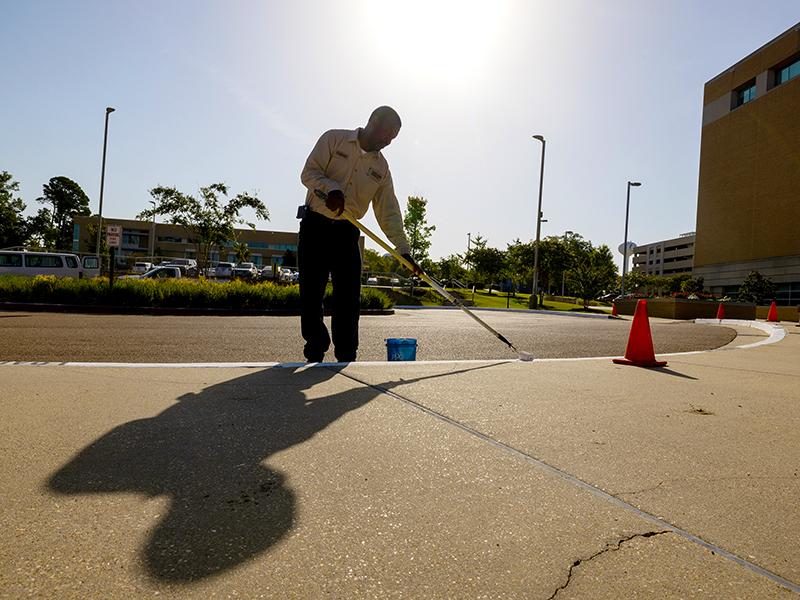UMMC experts: take precautions during heat wave

University of Mississippi Medical Center experts recommend respecting heat.

Dr. Trey Wofford, medical director of the Adult Emergency Department, said they generally see patients with heat-related illness every summer, but this summer has been especially busy.
“It has been so hot lately that we’re seeing an increase in heat-related illnesses,” he said.
The heat dome of high pressure that’s stretched from the southwest to the deep south this summer has resulted in triple-digit temperatures. While this week’s weather is forecast to be in the 90s, it’s still smart to take precautions.
Symptoms of heat-related illness can run the gamut from heat cramps and heat exhaustion to heat stroke, the most severe form of heat-related sickness and a life-threatening condition.
“It involves elevated body temperature of upward of 104 degrees, nausea, vomiting, worsening cramping and altered mental status. They may have dizziness that would cause them to pass out,” Wofford said.
Older adults, those with illnesses or obesity, and children are at particular risk. Taking certain medications can worsen heat-related illnesses.
Also, people who work outside are susceptible. They need to make sure they take frequent breaks and are hydrated.

Dr. Fernando Gomez, chief of pediatric emergency medicine at UMMC, said the Emergency Department at Children’s of Mississippi has not seen severe cases of heat-related illnesses this summer.
“Thankfully, with the safeguards schools have put in place in terms of outdoor practice will mitigate any occurrences,” Gomez said. “Right now is a prime time of year for heat illnesses to occur.”
Extreme heat is deadly, according to the U.S. Department of Homeland Security’s website Ready.gov. Heat waves result in the highest number of annual deaths among all weather-related causes.
Mississippi’s humidity can make high temperatures especially dangerous, since sweat can’t fully evaporate to cool the body.
“The best thing to do is stay inside with air conditioning. If they don’t have air conditioning, they need to find a place that does,” Wofford said.
Heat exposure can bring on heat cramps, heat exhaustion and heat stroke. Symptoms of heat-exhaustion include sweating, weakness, fast or weak pulse, headache, dizziness, fainting, nausea and vomiting.
Those experiencing heat cramps or heat exhaustion should get to a cooler location and drink water or a sports beverage. If symptoms last longer than an hour, seek medical attention.
The most serious of the three is heat stroke, which can be life-threatening. Signs of heat stroke include a body temperature above 103 degrees Fahrenheit, taken orally, dry skin with no sweat, rapid pulse, dizziness and confusion, and unconsciousness. If heat stroke is suspected, call 911 or seek medical attention at once. Do not give a person suffering from heat stroke anything to drink.
“Working outside, they sweat. In that sweat, they lose salt. They need to replace the sodium lost with electrolytes. Cramping occurs when sodium is low,” Wofford said. “We recommend people who work outside to drink plenty of fluids that contain electrolytes, and sports drinks are the classic example.”
Children’s of Mississippi experts warn parents and caregivers against leaving children inside cars, even briefly.
According to Safe Kids Worldwide, a child dies from heat stroke every 10 days, on average, because of being left inside a vehicle. In more than half of those cases, the child was forgotten. In 2022, 33 children in the U.S. died from heat stroke after being left in vehicles, the National Safety Council reports.

“A baby’s body heats up about three to five times faster than the body of an adult,” said Erinn Funches, safety and community outreach manager at Children’s of Mississippi. “Parents should always take their babies out of the car every time they stop, even if it is just to run inside to pay for gas.”


